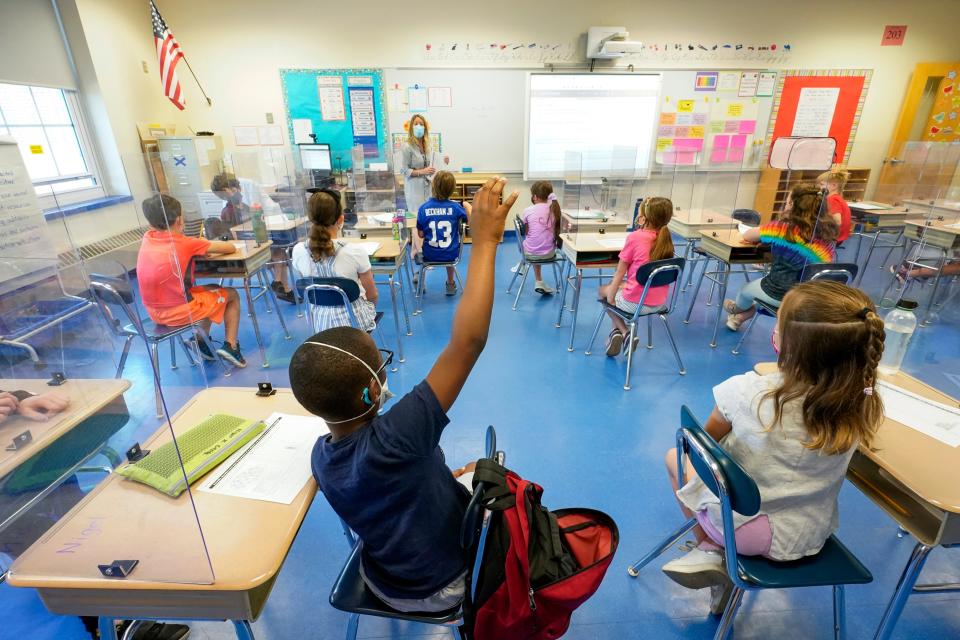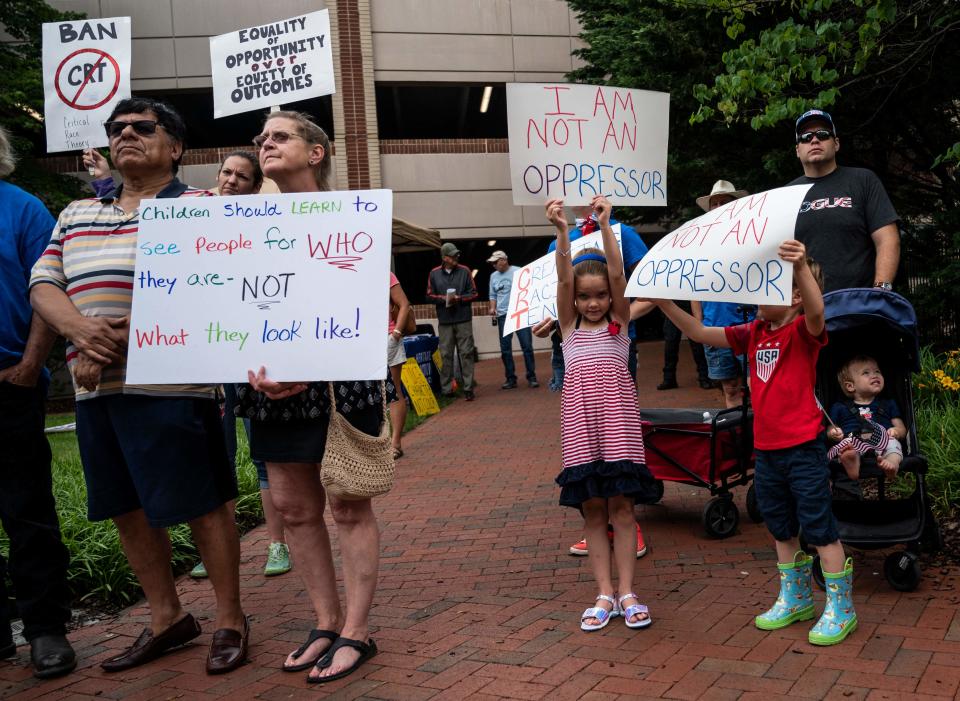Critical race theory fear a mix of the predictable, the outlandish and the justified
You’re reading Our View: Leave critical race theory to schools
For Other Views, read: States are right to pass CRT laws | Teaching critical race theory is patriotic.
Republican legislators in about two dozen states have introduced or won passage of bills to censor the education of children on race.
Exactly what are they afraid of?
A lot of it stems from President Donald Trump's "liberal indoctrination of America’s youth" demagoguing last year, when he created a commission to promote "patriotic" education in classrooms. (President Joe Biden killed the panel.)
Part of it is reaction to the The New York Times' Pultizer Prize-winning "1619 Project," which argues that Black Americans first brought to this country as enslaved people are the foundation of U.S. democracy – and which conservatives fear is a type of historic revisionism that will seep into schools. (Classroom curriculum from the project has already been developed.)
And there are concerns that children could be exposed to vaguely understood academic concepts like critical race theory, which right-leaning detractors claim stigmatizes white people as oppressors.
"Critical race theory says I'm a white supremacist," Texas lawmaker Steve Toth, a sponsor of the school censoring law in that state, told an Austin television station.
He's wrong about critical race theory and what it says about him. But the accumulated fear driving this wave of legislation is a mix of the predictable, the outlandish and, even, the justified.
Policing classroom discussions about race and racism
The 1619 Project, for example, while a noble and ambitious effort to illustrate the centrality of slavery in American history, oversold its premise to the point of committing historical interpretive error that editors first denied and then seemed to only partially concede.

Even so, responding to all these concerns by policing classroom discussions about race with a state law is like using a shotgun to drive mosquitoesout of a bedroom.
First and foremost, the new laws may very well be a violation of free speech.
USA TODAY Opinion newsletter: Get the day's best insights in your inbox.
Beyond that, legislation is far too blunt and unworkable a tool to surgically restrict certain controversial theories from education without chilling all discussion on the topic of race. Concerned Texas educators correctly worried that their state's new law – with its long list of racial concepts and views that "may not" be taught – could end classroom debate about race as a contributing factor in hiring, housing, police shootings, presidential elections and countless other areas.
Critical race theory is frequently misunderstood and misinterpreted
How is stifling this kind of discussion a healthy means of expanding young minds?
Moreover, school districts violating such laws risk losing state funding, and as judicial politics expert Jeffrey Sachs argues, "The people who will actually be parsing these (restricted race) terms ... will be the paranoid principal of a cash-strapped high school, yelled at by the town attorney about how it's better to be safe than sorry."
Critical race theory: What is it and why do Republicans oppose teaching it in schools?
A key target of this educational censorship is the frequently misunderstood academic concept of critical race theory. At its core, this decades-long academic framework, which examines circumstances where statistics show a disproportionate impact on minorities, attempts to explain why these inequalities persist and offer achievable goals to overcome them – in areas such as bank lending, discriminatory labor practices, incarcerated populations, police shootings and even higher rates of COVID-19 in Black and Latino communities.

It suggests the reality of white supremacy in social systems, and that racism has become endemic to legal processes and public policies. Critics latch on to these terms to argue the theory is trying to divide Americans. But a better response than attempting to eradicate it from classrooms is employing teachers who can helps students think for themselves about the concept.
As USA TODAY contributor Larry Strauss, a high school English teacher in South Los Angeles, argued, "I do not 'teach critical race theory' and I never will. I will teach (students) about it and help them understand its assertions and the evidence appropriate to support those assertions – but it must always be up to students to arrive at their own conclusions."
He's exactly right.
Legislators should stay out of the classroom. Curriculum, whether around race or 'rithmetic, is for school board members, principals and teachers themselves – education experts beholden to the classroom and the community – to sort out for the educational enrichment of their students.
USA TODAY's editorial opinions are decided by its Editorial Board, separate from the news staff and the USA TODAY Network. Most editorials are coupled with an Opposing View, a unique USA TODAY feature.
To read more editorials, go to the Opinion front page or sign up for the daily Opinion email newsletter. To respond to this editorial, submit a comment to letters@usatoday.com.
This article originally appeared on USA TODAY: Teaching critical race theory isn't trying to divide Americans

